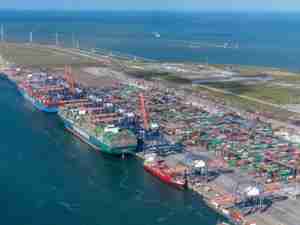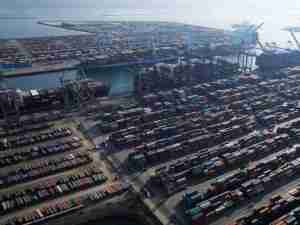The Northwest Seaport Alliance (NWSA) joins together with the International Association of Ports and Harbors (IAPH) signing the ‘Call to Action for Shipping Decarbonization’ that urges world leaders to first, make zero emission shipping the default choice by 2030.
Full decarbonization of international shipping is urgent and achievable. The Call to Action for Shipping Decarbonization asks for government action to align shipping with the Paris Agreement temperature goal. More than 150 industry leaders and organizations representing the entire maritime value chain, including shipping, cargo, energy, finance, ports, and infrastructure have become signatories.
Ships transport around 80% of global trade and account for about 3% of global greenhouse gas (GHG) emissions. The private sector is already taking concrete actions to decarbonize shipping. This includes investing in R&D and pilot projects, building carbon neutral operating vessels, buying zero emission shipping services, and investing in the production of net-zero emission fuels.
The NWSA is among some of the world’s largest actors in global trade including: A.P. Moller - Maersk, BP, Carnival Corporation, Citi, Hapag-Lloyd, MSC Mediterranean Shipping Company, Olympic Shipping and Management, Panama Canal Authority, Shell and Volvo. —
In conjunction with the UN General Assembly and ahead of critical climate negotiations at COP26 in Glasgow this November, the maritime stakeholders have called on governments to work together with industry to deliver policies and investments needed to reach critical tipping points in decarbonizing global supply chains and the global economy.
“The NWSA, alongside the Port of Tacoma, Port of Seattle and Vancouver-Fraser Port Authority joined forces more than a decade ago, taking voluntary action to adopt the Northwest Ports Clean Air Strategy which sets our ports on a path to zero-emissions in seaport activities by 2050,” said Port of Tacoma Commission President and Northwest Seaport Alliance Co-Chair Dick Marzano. “It is time for broad, consistent government action to support the long-term decarbonization of shipping.”
The Call to Action for Shipping Decarbonization urges world leaders to:
“Given the impact of climate change we’re already experiencing, the NWSA views green investments as a competitive advantage for our gateway,” said Port of Seattle Commission President and NWSA Co-Chair Fred Felleman. “The Port is committed to continuing to invest in the infrastructure the shipping industry needs to meet their decarbonization goals. We look forward to partnering with the federal government to build on such investments as shore power capabilities at our terminals, purchasing zero-emission yard equipment, and promoting emission reduction initiatives for trucking activities.”
- Commit to decarbonizing international shipping by 2050 and deliver a clear and equitable implementation plan when adopting the IMO GHG Strategy in 2023.
- Support industrial scale zero-emission shipping projects through national action.
- Deliver policy measures that will make zero-emission shipping the default choice by 2030, including meaningful market-based measures that can support the commercial deployment of zero-emission vessels and fuels in international shipping.
The Call to Action for Shipping Decarbonization has been developed by a multi-stakeholder taskforce convened by the Getting to Zero Coalition – a partnership between the Global Maritime Forum, the World Economic Forum, and Friends of Ocean Action.










